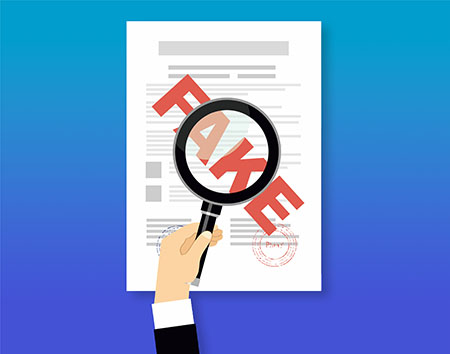Fraud in Federal Contracting is on the Rise in 2023
5/25/23
As you’ve likely noticed in the news, the pandemic was a prime opportunity for fraudulent actors to take advantage of federal agencies. Some of the programs targeted, such as the paycheck protection program (PPP) were only temporary targets, however there are other methods in which fraudsters continue to take advantage of the system.
We are continuing to see bad actors creating fake solicitations or RFQs and sending them via email or posting in relatively public areas like LinkedIn. They are posing as acquisition officers, senior  executives, political appointees, etc. The duped contractor fulfills the order to the provided fake address and bills the purported agency, who then lets them know it was never a legit fulfillment request. Small businesses that are less familiar with the federal contracting world can be disproportionately affected by this.
executives, political appointees, etc. The duped contractor fulfills the order to the provided fake address and bills the purported agency, who then lets them know it was never a legit fulfillment request. Small businesses that are less familiar with the federal contracting world can be disproportionately affected by this.
In today’s digital landscape there are relatively low barriers to this type of fraud. Senior individuals within organizations are likely to have a stronger online presence. This can be attributed to their participation in conferences, online interviews, etc., which unfortunately creates an opportunity for fraudsters to exploit through deep fakes or by mimicking their writing and speaking style. The targeting of senior officials, both in the public and private sectors, has become increasingly prevalent in recent times.
How do you protect yourself? Given how pervasive fraud is, we can all inadvertently experience it when we aren’t being fully diligent. Scams cost U.S. consumers $8.8 billion in 2022 and that number is rising exponentially. There are literally large overseas corporations that make fraudulent activity their primary business. If you haven’t already been targeted, you likely will be. Thus, it’s imperative that you do your research before shipping something of value to an address.
Fortunately, federal contracting is relatively transparent when it comes to officially released solicitations. Unless the contract is part of a new vehicle such as an IDIQ, program or GWAC, or is top-secret, it is very likely to be publicly visible. If you are viewing an opportunity in EZGovOpps, you can always click the source link to see the government site that it came from. You can also look up the associated procurement officer or program manager in the EZGovOpps contact search to confirm that the procurement is indeed associated with them, and/or check with them using the contact information provided.
If you believe you are a victim of fraud, you can report it to the FTC: https://reportfraud.ftc.gov/#/ and the Government Accountability Office: https://www.gao.gov/about/what-gao-does/fraud . Stay diligent!

Recent Comments